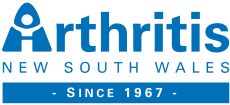
A question landed in my Inbox the other week asking if there were any Medicare schemes available to help manage their chronic arthritis (and related conditions). As I replied to this question, it dawned on me that if this person doesn’t know about what Medicare services are available, then others may not either. It did surprise me, however, that this person had been suffering chronic arthritis, pain and depression for years and their doctor had not offered them the Medicare services discussed below.
Chronic Disease Management Individual Allied Health Services under Medicare
Summary
- Medicare rebate for a maximum of five allied health services per patient each calendar year from eligible providers. Additional services are not possible in any circumstances.
- If a provider accepts the Medicare benefit as full payment for the service, there will be no out-of-pocket cost. If not, you will have to pay the difference between the fee charged and the Medicare rebate.
- A patient must have a GP Management Plan (GPMP) and Team Care Arrangements (TCAs) (or a multidisciplinary care plan for residents of a residential aged care facility).
- Your GP will decide whether you would benefit from these services and, if so, will refer you for appropriate allied health services.
- Allied health services must be provided by eligible providers who are registered with Medicare
(Australian Government, Department of Health, 2020)
Eligibility
You may be eligible to claim Medicare rebates for allied health services if you have a chronic medical condition. A chronic medical condition (as classified by Medicare) is one that has been (or likely will be) present for at least six months or longer, for example, asthma, cancer, cardiovascular disease, diabetes, musculoskeletal conditions (including arthritis!) and stroke. There is no specific list of conditions, however, chronic disease management (CDM) items are designed for patients who require a structured approach and ongoing care from a multidisciplinary team.
Upon discussion with your GP, and once you have GPMP and TCAs in place, you are then eligible for up to five allied health sessions each calendar year. You and your GP can discuss what services you should be referred to. The five sessions can be provided by a single allied health provider or shared across different providers. You can request your GP refer you to an allied health professional that you already know, or your GP can recommend one.
To attract this particular Medicare benefit, you must have a referral. Some providers (who are registered with and eligible to provide this Medicare service) will accept the Medicare benefit as full payment for the service and some won’t. What does this mean? You will not have to pay anything (no out-of-pocket costs) for those providers who accept the Medicare benefit as full payment; the service to you is free! Alternatively, you may have to pay the difference between the fee charged and the Medicare rebate. To find out if the service will be gap free or not, you will need to call your preferred allied health professional and ask or perhaps your GP will know. Be aware that Medicare requires the allied health professional to see a patient face-to-face for a minimum of 20 minutes.
Who should I see if I have arthritis?
Who you should see is really up to you and your GP to decide, however, you will likely benefit from a Physiotherapist, Occupational Therapist (OT), Exercise Physiologist (EP), Dietitian, and/or even a Psychologist. The list below details eligible allied health providers.
Eligible Allied Health Providers
- Aboriginal Health Workers
- Aboriginal and Torres Strait Islander Health Practitioners
- Audiologists
- Chiropractors
- Diabetes Educators
- Dietitians
- Exercise Physiologists
- Mental Health Workers*
- Occupational Therapists
- Osteopaths
- Physiotherapists
- Podiatrists
- Psychologists
- Speech Pathologists
* includes Aboriginal and Torres Strait Islander Health Practitioners, Aboriginal Health Workers, mental health nurses, occupational therapists, psychologists and some social workers.
Five sessions may not seem like much when you suffer chronically from arthritis, pain or even a mental health condition. However, if used wisely, these sessions could do a world of good. Remembering that who you see and session allocation will ultimately be determined your GP (though hopefully in collaboration with you); you may like to see a Dietitian to get some individualised advice on dietary intake/changes for your specific condition, a Physiotherapist or EP for rehabilitation exercises or an exercise program, an Occupational Therapist because, for example, you may have hand arthritis and need advice on assistive tools, or a Psychologist to help cope with feelings of isolation, anxiety or depression. For effective treatment and outcomes, seeing one professional may be ideal, however, you may be allocated to see two or even three professionals because you need support in a few areas.
Better Access to Mental Health initiative
If you are requiring mental health support alongside your chronic arthritis, personally, I would not use the CDM Medicare benefit on psychological services. Instead, I would access the Better Access to Mental Health initiative under Medicare. This service allows up to 10 sessions per the calendar year of rebated sessions with a psychologist. Medicare will pay approximately $126 of a clinical psychologists fee and approximately $86 for a generalist psychologist. It’s likely you will need to pay a gap fee (i.e. there will likely be an out-of-pocket fee). Again, you will need to see your GP about this service and you must have the referral to attract the Medicare benefit.
Is there any other health related services that are for free or low cost? Yes, there certainly is!
Check out the Active and Healthy website here. You can enter your suburb of residence and a whole list of activates available to you comes up. For example, I enter in ‘Hornsby’ and Yoga and Tai-Chi classes pop up for as little as $10/class, and some classes are even free for the first term. Active and Healthy also help facilitate the Stepping On program. The Stepping On program is free to those over the age of 65 living in the community. The program is centred on fall prevention and considered to be highly effective. Participants attend seven two-hour group sessions, during which they learn about strengthening and balance exercises, safe footwear, medication management, vision, nutrition, moving safely in the community and reducing hazards around the home that can lead to accidents. Read more about the Stepping On program here. Also, I recommend enquiring at your local community health centre if there are any free or low cost activities, health checks ups or seminars.
(Active and Healthy, 2020)
COVID 19- Bulk Billed MBS Telehealth Services
Temporary Medicare Benefits Schedule (MBS) and Department of Veterans’ Affairs (DVA) items will allow doctors, nurses, midwives and mental health professionals to deliver services via telehealth (video & phone), provided those services are bulk billed. Learn more here.
Arthritis NSW – we’re here to help
We’re here to help whenever you need us. We have a variety of options available for support and information.
- For more BLOG articles about managing your arthritis, please visit our News page here.
- Sign up to eNews to get information and advice on managing your condition
- Call our free helpline on 1800 011 041 (Monday to Friday, 9am to 5pm)
- Join our online community: Follow us on Facebook or Instagram
- Subscribe to our magazine, more info here
- Become a member, more info here
